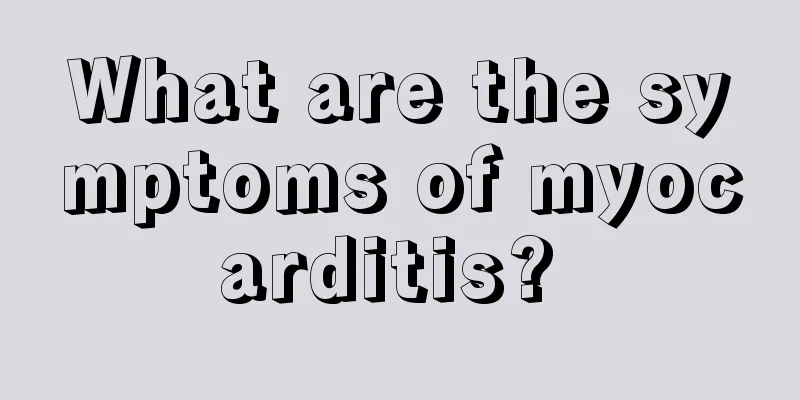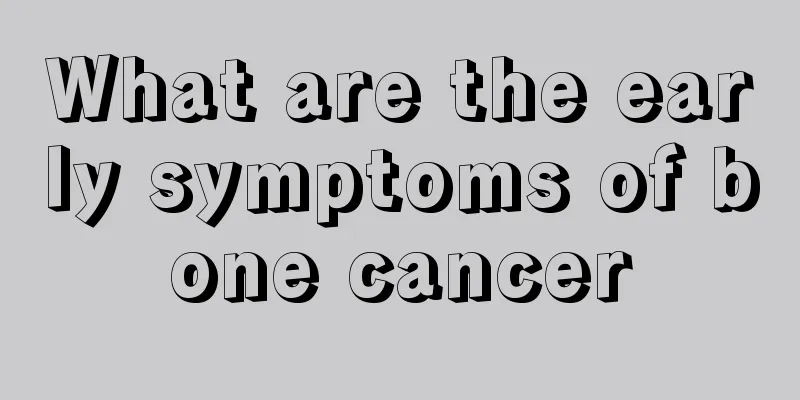What are the symptoms of myocarditis?

|
Heart health is something that no one can take lightly, because the heart plays a vital role and has systemic effects. Once there is a problem with the heart, life safety may be threatened. Therefore, protecting the heart is a key concern for people, and there are many heart diseases. For example, myocarditis is a relatively common disease. Let’s take a look at the symptoms of myocarditis. Myocarditis refers to inflammatory lesions of the myocardium caused by various reasons. Various factors such as infection, physical and chemical factors can cause myocarditis. The severity of the myocardial damage caused varies greatly, and the clinical manifestations are different. Mild patients have no symptoms, while severe patients may suffer from heart failure, cardiogenic shock and even sudden death. Most patients can recover after treatment, but some patients develop dilated cardiomyopathy after the acute phase and may suffer from recurrent heart failure. Myocarditis can occur in people of all ages, but is more common in young and middle-aged people. Symptoms: 1. For myocarditis caused by infectious reasons, there are often symptoms of primary infection first. For example, viral ones often have fever, sore throat, cough, vomiting, diarrhea, muscle aches, etc. Most of the symptoms of myocarditis appear 1 to 3 weeks after the viral infection. 2. Patients with heart failure as the main manifestation may experience various symptoms of heart failure such as dyspnea; 3. In severe cases, cardiogenic shock may occur and related symptoms of shock may appear; 4. If the inflammation involves the pericardium and pleura, symptoms of chest tightness and chest pain may occur; 5. Some patients may also have symptoms similar to angina pectoris. Common physical signs include sinus tachycardia that is not parallel to body temperature, sinus bradycardia and various arrhythmias may also occur. Heart border enlargement accounts for 1/3 to 1/2 of patients, which is seen in severe myocarditis. Heart enlargement can cause mitral or tricuspid valve regurgitation, systolic murmur at the apex or left lower edge of the sternum, diastolic gallop rhythm and weakened first heart sound may be heard in patients with severe myocardial damage or heart failure, pericardial friction sound may be heard in patients with pericarditis, and mild cases may be completely asymptomatic and sudden death may occur. |
<<: What disease is tinnitus a symptom of?
>>: My ears feel swollen and blocked, what's going on?
Recommend
The best treatment for brain cancer
What is the best way to treat brain cancer? When ...
The big toe nail turned black, it turned out that I had this disease
In daily life, we often see some people's big...
Can brain cancer patients eat chicken?
Brain tumor is a general term for intracranial tu...
Life expectancy of patients with advanced prostate cancer
Prostate cancer is a malignant tumor disease. Cur...
What is the function of Nasatong
Bisatong is a commonly used drug for the clinical...
How to treat early stage lung cancer in a 75-year-old
Early stage lung cancer in a 75-year-old can be t...
Why do my hands feel numb after exercise
Many friends will experience adverse reactions su...
What causes red, itchy and swollen eyes? Be careful of these eye diseases
Everyone must be very concerned about the phenome...
Can oral anti-inflammatory drugs be used externally?
Generally, anti-inflammatory drugs are classified...
What causes high risk of Down syndrome screening
As people pay more and more attention to their ph...
What is the correct way to smoke?
People can be seen smoking everywhere in life. Ev...
What are some ways to stimulate uterine contractions?
Before giving birth, the pregnant woman's bod...
Can hemorrhoids cause fecal incontinence?
Hemorrhoids are a very common disease. It is said...
What causes rectal cancer
Rectal cancer is the most common type of colorect...
Can I eat mangoes to lose weight?
For female friends, they all hope to have a slim ...









